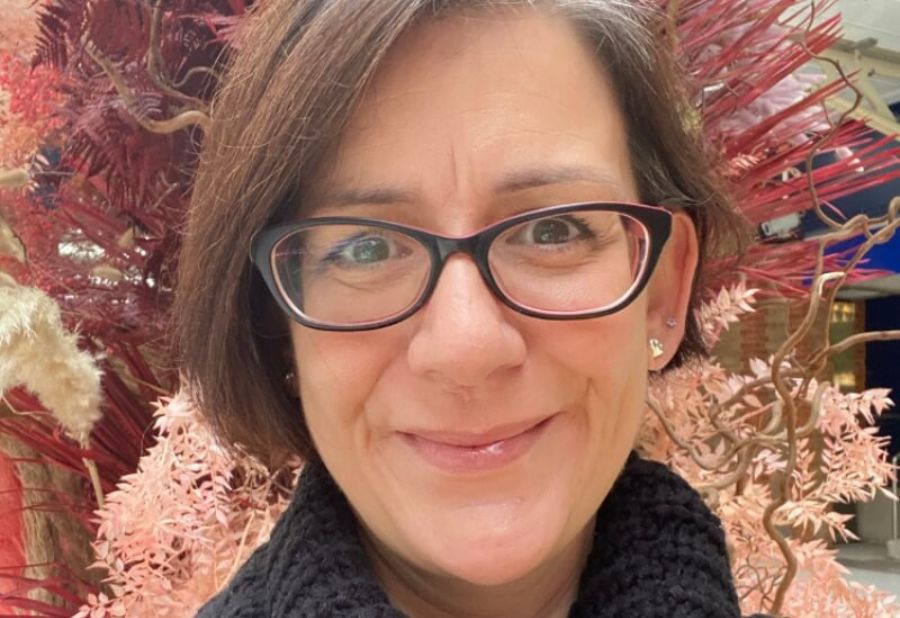Louisa Daley speaks to Helen Moon, chief executive at EventWell, about how the mental health landscape has changed over the past 18 months and how its Quiet Rooms aim to support eventprofs.
There’s no doubt that mental health and wellbeing are high on the industry’s agenda, arguably because the pandemic has allowed us to reflect on what’s important and take time for ourselves
and our loved ones.
However, mental health and wellbeing should not be treated merely as a ‘hot topic’, it should instead be something our industry continuously strives to put first.
To learn how to create tangible, positive change around mental health and wellbeing, we speak to Helen Moon, chief executive at EventWell.
Who are EventWell?
“EventWell is a charitable social enterprise,” explains Moon. “This means that 50% of what we do is commercial, and the other 50% of what we do is charitable,” she adds.
For example, EventWell has commercial projects including Workplace Wellbeing Programmes, as well as its Quiet Rooms – but more on that later. “These commercial elements are really important for funding our charitable outreach and support work,” stresses Moon, which involves charitable projects and campaigns such as EventWell Wellbeing Day and Week, and its Pledge Peer Support Programme.
“Overall, our mission is to be the mental health and wellbeing voice for the events industry,” she adds. Why the voice?, I ask. “We call ourselves the voice because we give a voice to the people behind the event professional personas who feel unheard,” says Moon. “We are here to make tangible change to the event’s industry’s relationship with wellbeing.”
The pandemic’s role
So, what’s our industry’s relationship with wellbeing and mental health like today? “It’s clear everyone has had to deal with some kind of trauma, issue, or setback because of the pandemic. It’s what we call mass trauma,” says Moon.
Whether this trauma involved losing jobs, being furloughed, closing businesses or last-minute cancellations, “everyone’s mental health and wellbeing has been significantly impacted,” she states.
More specifically, the pandemic has affected people’s anxiety levels. “People are experiencing anxiety at a much-exacerbated scale than previously,” she says. “It’s estimated that people who have experienced poor mental health over the last few years is one in two. For adults, this means one in every two (over the age of 25) and for teens and adolescents, this means two out of three,” Moon reveals. Whilst anxiety levels are at an “all-time high” because of the uncertainty, Moon encourages us to realise that “it’s normal to feel anxious, anxiety keeps us alive.”
“Due to the increased anxiety levels, people’s confidence has also dropped,” says Moon. How has this affected the return to in-person events now that the industry is bouncing back?, I ask. “Some people don’t want to attend events or mix with people at the moment,” says Moon. Whilst this could be due to the virus, Moon states, “it’s also because people want to place their attention in other places, such as family.” “This is where people want that hybrid element,” she says. On the other hand, “it’s important for other people to mix because they might live alone, so they’ll want to be there in person.”
On the flip side, the pandemic has resulted in much greater awareness and understanding of mental health and wellbeing. “There’s going to be different mental health and wellbeing needs emerging at events, where delegates are going to want to do things in different ways,” says Moon. This is something event planners, producers, and managers are becoming aware of. “It’s going to be a trend that we see. It’s going to become a norm, and less of a need,” she adds.
Quiet Rooms
Although many people are returning to live events, it may cause some delegates to become overwhelmed or ‘triggered’. “Examples of triggers include lighting, sound, crowded spaces, and lack of breaks throughout the day,” explains Moon.
This is where EventWell’s new Quiet Rooms come in. “Quiet Rooms are about offering a space for anybody to reset and renew,” Moon says. In these rooms, eventprofs can find meditation stations, tablets with noise-cancelling headphones, books, magazines, water, coffee and even somewhere to lie down for a short power nap.
Each Quiet Room is also fitted with aromatherapy burning oils and lighting, which is designed around Autism. “It’s all about immediately creating a sense of calm through all of the senses,” explains Moon. “We also have a qualified Mental Health First Aider on site if eventprofs want to talk to anyone,” she adds. On average, Moon tells me, eventprofs typically spend 20 minutes in a Quiet Room, and even come back throughout the day. “We see a lot of keynote speakers use our Quiet Rooms, simply to deal with nerves before going on stage as everybody gets them,” she adds.
Whilst Quiet Rooms offer peace of mind to eventprofs, Moon reminds us: “the idea of a Quiet Room is not about taking people away from an event. It’s about keeping people at an event, and giving them a space where they can go in just to sit and take a breather if they need to.”















